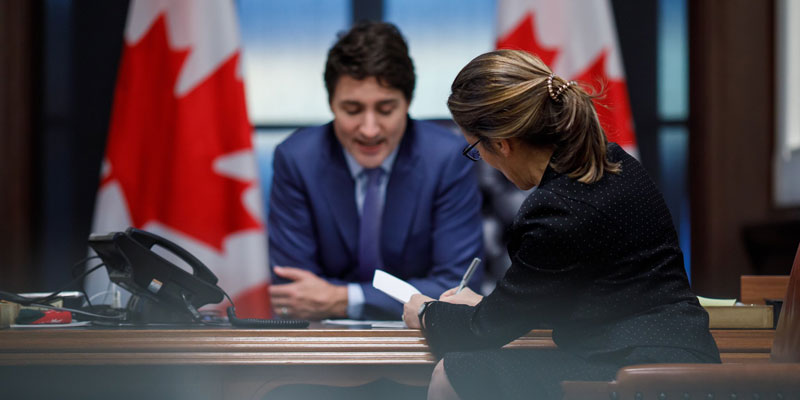Trudeau government eyeing massive new social programs

Next week, the Trudeau government’s much-anticipated throne speech may include plans for a guaranteed income program, national drug coverage, national daycare and several green initiatives.
It’s important to put these large spending initiatives in context.
The government has estimated the federal budget deficit at $343.2 billion in 2020-21, due to lower government revenues ($83.5 billion) and much higher government spending ($239.0 billion) mainly because of COVID and the recession. The $343 billion deficit also means that federal debt will exceed $1 trillion.
Interest costs on federal debt accumulated this year alone are $6.3 billion, and that assumes interest rates remain at historic lows. If interest rates return to 2019 levels, interest costs on this year’s debt increase to $11.7 billion.
And contrary to Prime Minister Trudeau’s continued claims, these costs are not one-time expenses, they’re ongoing. Taxpayers will incur $6.3 billion annually for just the debt incurred this year.
Moreover, the cost of borrowing could rise even without interest rates changing if lenders believe Canada is becoming a bigger credit risk. For instance, the Fitch credit rating agency already downgraded Canadian debt, indicating higher risk.
To recap, at a time of near unprecedented borrowing in response to an unprecedented public health-induced recession, the Liberals are contemplating major new social programs. The prime minister has assured Canadians he won’t raise taxes now, which means all spending will be financed by borrowing, with younger generations of Canadians bearing the costs in the future.
Those costs will be substantial, in the form of higher taxes, which the Trudeau government has all but admitted.
And we’ll also likely see increased interest costs on the national debt, which means a larger and larger gap between the taxes paid by taxpayers and what they actually receive from government. In fact, annual debt interest costs on the national debt will almost double to $36.2 billion if interest rates return to 2019 levels, which were historically low.
You can imagine what happens if rates rise further.
Authors:
Subscribe to the Fraser Institute
Get the latest news from the Fraser Institute on the latest research studies, news and events.

